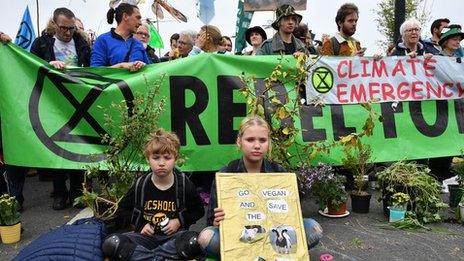Extinction Rebellion: Climate change protesters at Natural History Museum
- Published
Protesters lie down underneath the giant whale skeleton in the museum's main hall
Extinction Rebellion activists took over part of the Natural History Museum as the climate change protest entered its second week.
About 100 people lay down under the blue whale skeleton at about 14:15 BST.
It comes as more than 1,000 people have been arrested since the protests began in central London a week ago.
The climate change group are now based in Marble Arch, after police moved protesters from Oxford Street, Waterloo Bridge and Parliament Square.
Extinction Rebellion said it hoped the protest at the museum, which it called a "die-in", would raise awareness of what they call the "sixth mass extinction".
Most of the protesters finished their lie-down protest after about half an hour.
But some people wearing red face paint, veils and robes remained to give a performance to classical music on the steps underneath the whale skeleton.
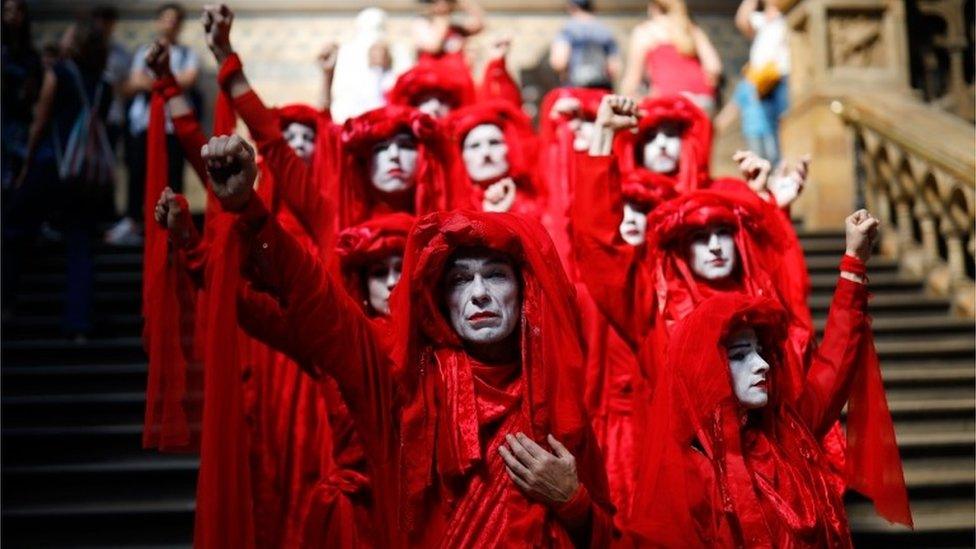
The "die-in" protest lasted about an hour and concluded with a performance by The Invisible Circus
On Sunday, teenage activist Greta Thunberg told the rally in Marble Arch that they were "making a difference".
Mayor of London Sadiq Khan said the protest was taking "a real toll" on London's police and businesses.
"I'm extremely concerned about the impact the protests are having on our ability to tackle issues like violent crime if they continue any longer," he said.
About 9,000 police officers have been responding to the protest since it began a week ago on 15 April.
Teen activist Greta Thunberg addresses Extinction Rebellion rally
A total of 1,065 people have been arrested and 53 have been charged for various offences including breach of Section 14 Notice of the Public Order Act 1986, obstructing a highway and obstructing police.
Olympic gold medallist Etienne Stott was one of the activists arrested as police moved to clear Waterloo Bridge on Sunday evening.
The London 2012 canoe slalom champion was carried from the bridge by four officers as he shouted about the "ecological crisis".
An Extinction Rebellion spokesperson said there would be no escalation of activity on Easter Monday, but warned that the disruption could get "much worse" if politicians are not open to their negotiation requests.
On Sunday, one organiser told the BBC the group were planning "a week of activities" including a bid to prevent MPs entering Parliament.
The group said a "people's assembly" was due to be held later to decide what will happen in the coming week.
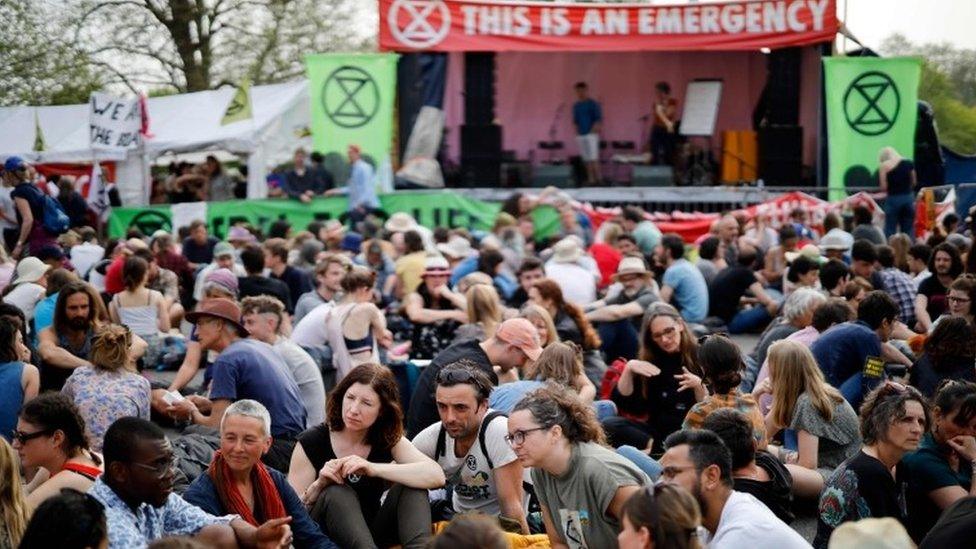
Thousands of protesters have spent Monday at the Marble Arch site
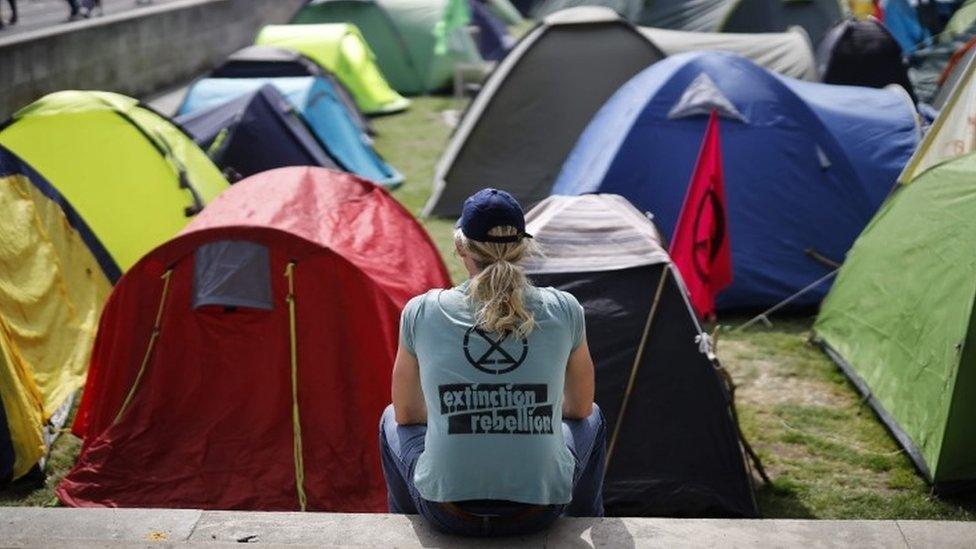
The protest group has been forced to focus its activities on its Marble Arch site
On Sunday, Ms Thunberg was greeted with chants of "we love you" as she took to the stage in front of thousands of people at the rally.
The 16-year-old, who is credited with inspiring an international movement to fight climate change, told the crowd "humanity is standing at a crossroads" and that protesters "will never stop fighting for this planet".
Met Commissioner Cressida Dick has said that during her 36-year career she had never known a single police operation to result in so many arrests.

What is Extinction Rebellion?
The co-founder of the protest group invites people to join
Since the group was set up last year, members have shut bridges, poured buckets of fake blood outside Downing Street, blockaded the BBC and stripped semi-naked in Parliament.
It has three core demands: for the government to "tell the truth about climate change"; to reduce carbon emissions to zero by 2025; and to create a citizens' assembly to oversee progress.
Controversially, the group is trying to get as many people arrested as possible.
But critics say they cause unnecessary disruption and waste police time when forces are already overstretched.
- Attribution
- Published22 April 2019
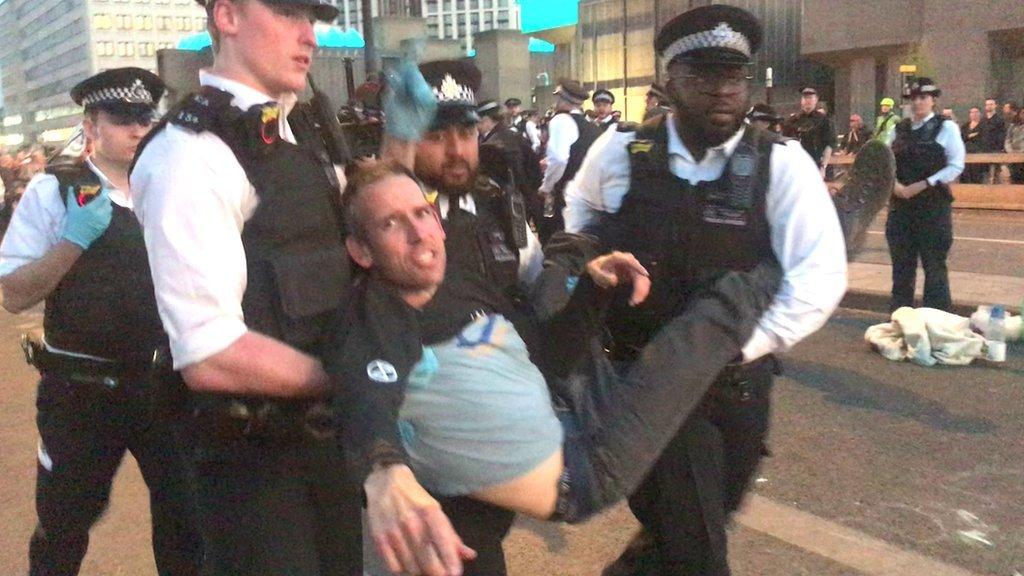
- Published21 April 2019
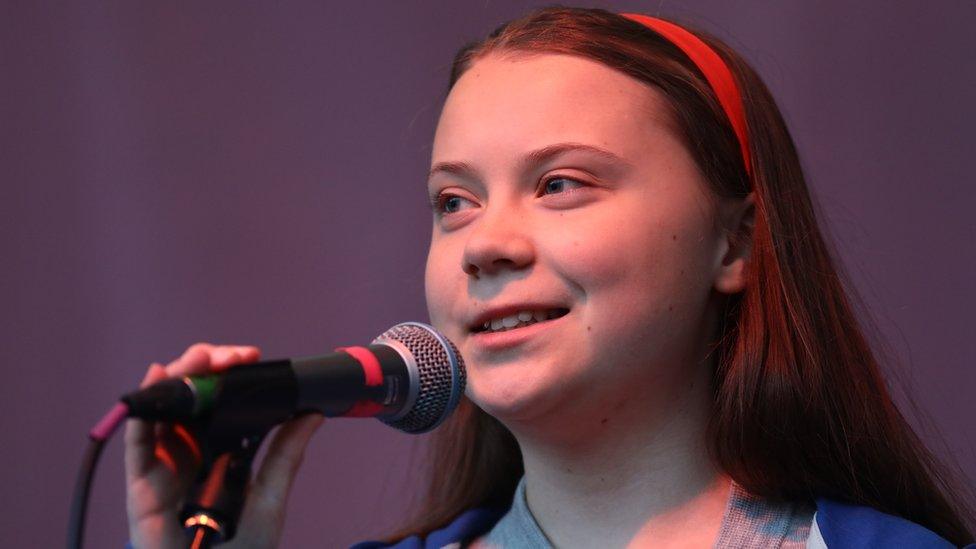
- Published20 April 2019
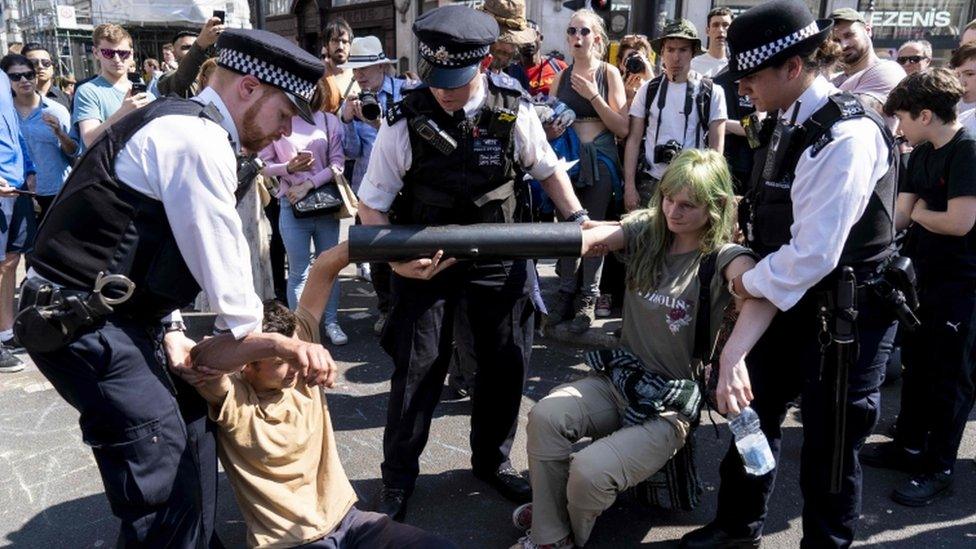
- Published20 April 2019
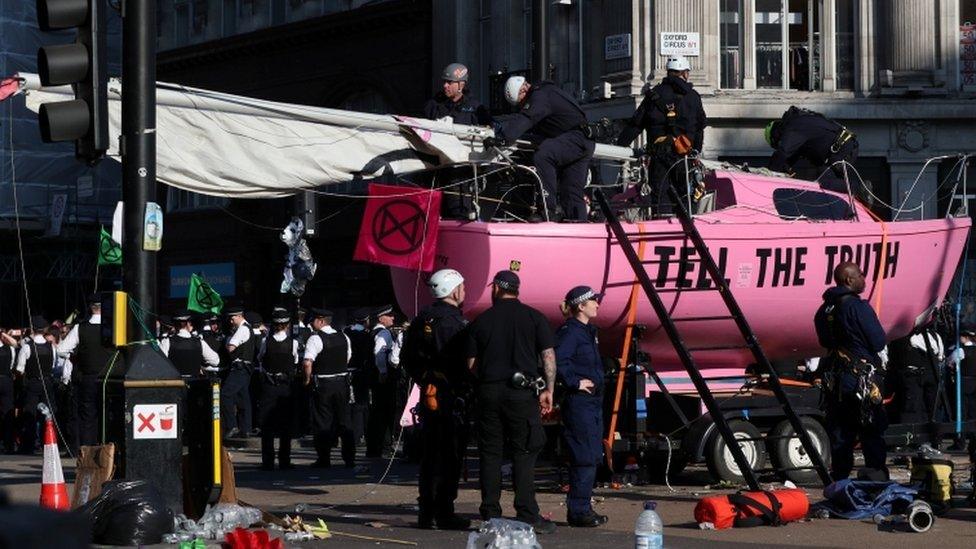
- Published18 April 2019
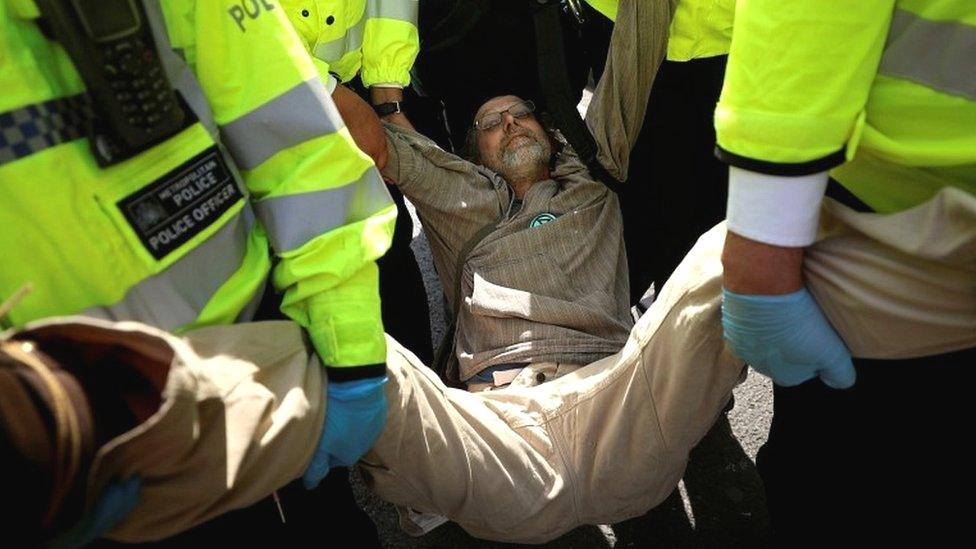
- Published16 April 2019
